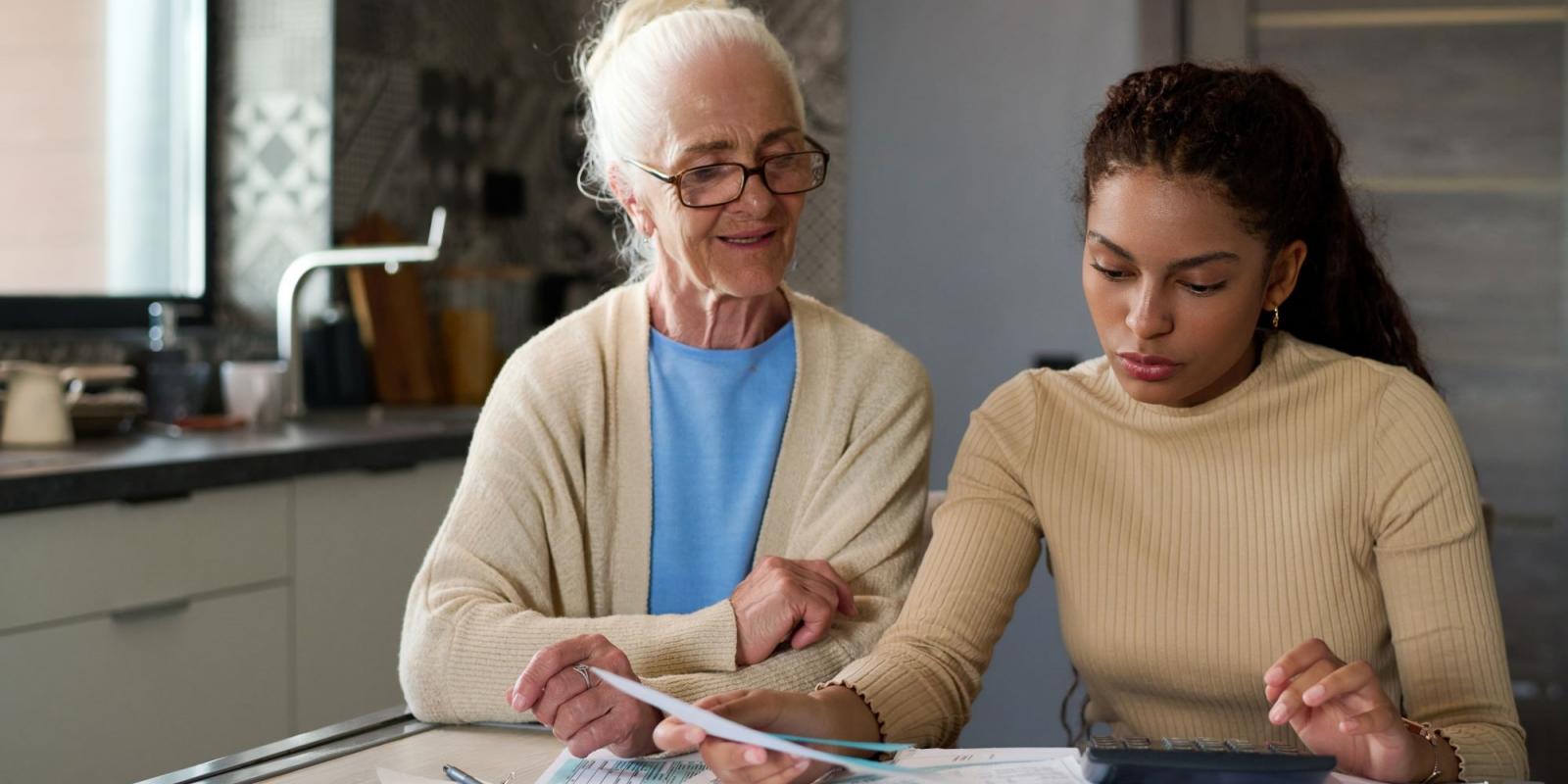The COVID-19 pandemic provided insight into gaps in programming for all generations when it comes to mental health and well-being. As a preteen during the pandemic, I found the increase in household responsibilities—caring for loved ones, especially in New York where access to support services was ever-changing due to stay-at-home orders and fear of the virus—as well as online learning, to be extremely stressful.
I cared for my grandmother who recently passed away from Alzheimer’s Disease. My mother had cared for her grandmother with Alzheimer’s Disease, too, often going to her house on weekends to spend time, clean, cook, and help out in any way she could.
Thirty-five years have passed between our scenarios, with little progress in recognizing teenagers as a real workforce in caregiving or providing coping resources to help us navigate our roles as caregivers. Policy decisions have not kept up and caregivers who are younger than age 18 have been left out of needed legislation, formal support programming and respite, even in this post-pandemic world.
Reflecting on this notable absence, it makes sense for me that our faith-based organizations would be a catalyst for change and work with governmental agencies, private and public sector organizations to increase resources for teenagers caring for loved ones with chronic disease. There have been community-level efforts, but a coordinated, national push across faiths and cultures could be even more effective.
The rates of dementia and chronic disease are on the rise, especially in marginalized communities. In addition, there is an increase in multigenerational households where teens play a pivotal role in caregiving—a fact highlighted by the pandemic.
‘The need for support services for teenage caregivers is HUGE.’
New York has programs that support caregivers that may be family under the Consumer Directed Personal Assistance Program (CDPAP). The program empowers families; however, it is directed to those older than age 18.
A first, critical step would be to recognize the heterogeneity of caregivers, and to outline the need to support different caregivers in the National Strategy to Support Family Caregivers. The strategy here is that local, state and nonprofit organizations would all align, with direct recommendations from the federal government.
Currently this effort remains a bit disjointed, and as noted, caregiving youth are often left out of the data for many reasons. The largest study looked at young adult caregivers ages 18-25, which still does not touch upon the needs of much younger caregivers to be recognized and supported. Larger studies are needed to understand the nuances of being a youth caregiver, especially in the areas of mental well-being.
How many Generations readers as teenagers provided support to older loved ones in the form of social respite, meal delivery, transportation accompaniment or technology support? Were you embarrassed to share your frustration with friends about how difficult it is to bathe and dress your loved one so they can attend an event? All while struggling to keep up schoolwork, sports, and your newspaper route or restaurant job?
We caregiving youth have been absent from many policy decisions, yet we are, according to Elizabeth Olson—“the largest volunteer life-saving corps in the world.” The need for support services for teenage caregivers is HUGE. Research has shown that the frequency and level of intensity of caring for loved ones as a young person is related to higher levels of developmental risk in many domains including social life, physical health and academics.
A systematic approach to understanding the needs of caregiving youth is needed to tailor interventions to this group. Using faith-based organizations as a coordinated approach is one way to help us feel understood and share best strategies.
Resources for teen caregivers:
https://www.alz.org/help-support/resources/kids-teens/for_teens
https://www.nextavenue.org/grand-caregivers-caring-for-grandparents/
https://www.caregiving.org/research/caregiving-in-the-us/
Jacob Zwerling is a senior in high school and has been mentored, conducted research, and published in biodesign and innovation, with a focus on marginalized populations. He is eager to continue his work on finding equitable healthcare interventions into underserved communities.
Photo credit: Shutterstock: AnnaStills
A version of this article appeared previously in NeurologyLive.













